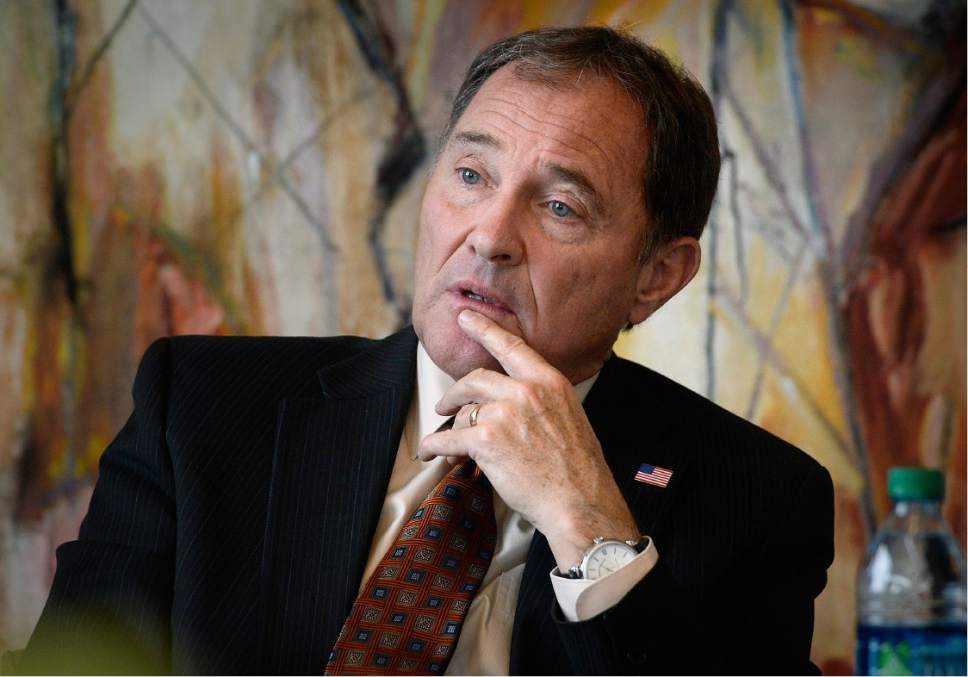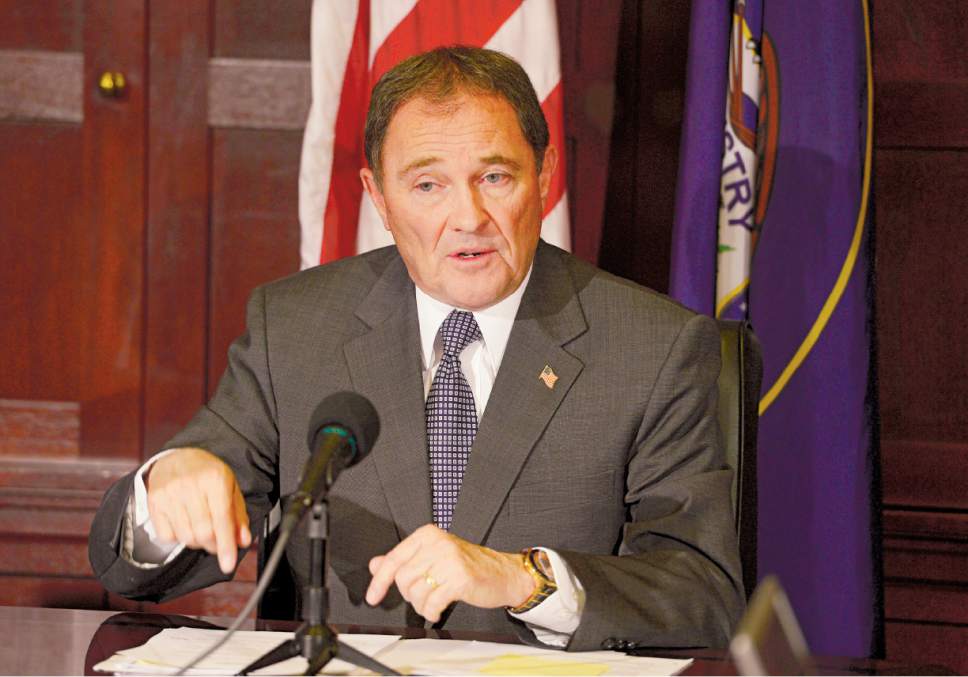This is an archived article that was published on sltrib.com in 2016, and information in the article may be outdated. It is provided only for personal research purposes and may not be reprinted.
A libertarian think tank has given Gov. Gary Herbert a "D" grade when it comes to limiting the size of state government, hitting Utah's chief executive for raising taxes and rapid growth in the state budget and the number of workers on the state payroll.
The assessment by the Washington, D.C.-based Cato Institute stands in stark contrast to Herbert's message on the stump as he seeks re-election. The governor has touted his efforts to reduce regulation and cut the size of the state workforce.
"We've been listed as the best-managed government in America today, and yet we said we could do more," the governor told the Utah County Republican Convention earlier this year. "We said we could find 25 percent more efficiency in government. You have to go back 15 years to find fewer employees in state government, saving you another $177 million each and every year going forward."
But Cato notes the state budget grew by almost 7 percent in 2015 and more than 9 percent in 2016. And state government employment "has soared under Herbert, growing a remarkable 20 percent since he took office in mid-2009."
So who is right? To some degree, both are.
The Cato numbers, based on U.S. Census data, include schoolteachers among the ranks of state employees. With teachers included, the number of state government workers grew from 64,100 when Herbert took office in 2009, peaked at 80,600 in April of this year, and has dipped to 74,700 in the most recent report in August.
But if teachers are not included, the state workforce stood at 32,700 when Herbert took office and is at 30,600 today. And given the state's population growth — from 2.72 million people to 2.94 million today — the number of state workers per 1,000 residents has dipped from 12 to 10 during Herbert's time in office.
Cato also dings Herbert for tax increases that were approved in 2015, including a gas tax hike which boosted costs by $75 million a year and a statewide property tax hike designed to help mostly rural and poor school districts that expanded tax collections by a similar amount.
The governor proposed a tax on e-cigarettes, as well, but the Legislature did not adopt the proposal.
Connor Boyack, president of the Utah-based libertarian policy organization the Libertas Institute, said Herbert should have blocked the tax hikes and that the Legislature, which passed them, also bears part of the blame.
"Rather than cutting spending on unnecessary programs and bloated bureaucracy, elected officials in Utah have proven themselves all too willing to take more money from hardworking families struggling to make ends meet," Boyack said. "Our low position should give public officials — and the voters who elect them — serious pause as to whether Utah is actually the conservative state we like to call it."
gehrke@sltrib.com, Twitter: @RobertGehrke





